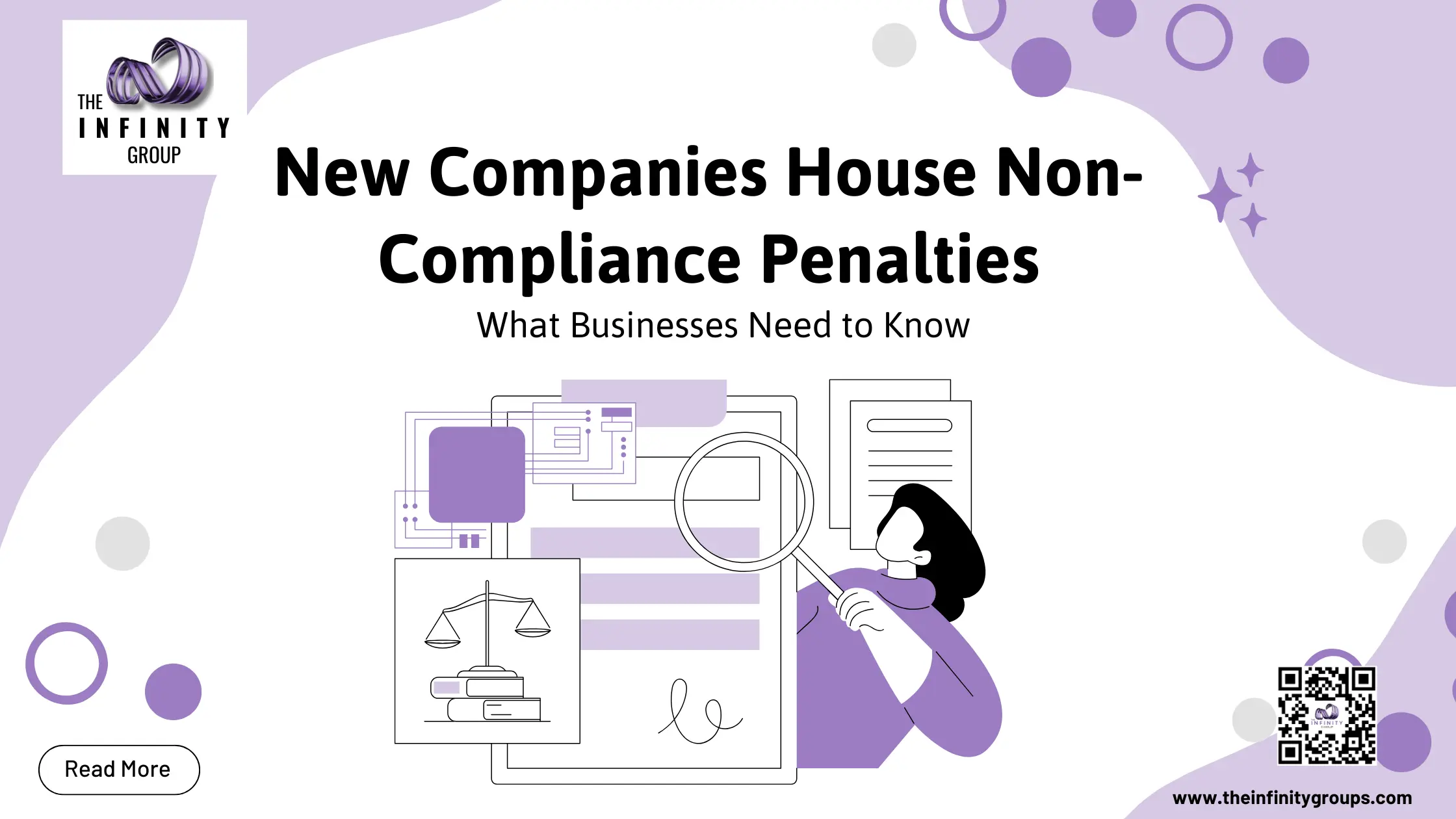The introduction of the Economic Crime and Corporate Transparency Act 2023 has brought significant changes to the UK’s corporate landscape. Among these changes, Companies House has been granted enhanced powers to impose non-compliance penalties on businesses and directors who fail to meet their statutory obligations under the Companies Act 2006. These new measures are designed to improve the quality of the public company register and minimise unlawful activities.
As a business owner, staying compliant has never been more critical. Here’s what you need to know about these penalties, how they’re enforced, and how to avoid them.
What Are the New Non-Compliance Penalties?
Under the Economic Crime and Corporate Transparency Act 2023, Companies House now has the authority to impose financial penalties as an alternative to court prosecution. These penalties can be:
- Fixed Penalty: A set amount based on the severity of the offence.
- Daily-Rate Penalty: Charged for each day the offence continues.
- Combination Penalty: A mix of fixed and daily-rate penalties for severe non-compliance.
Penalties range based on the level of offence:
- Minor offences (e.g., late filings) start at £250 for the first offence and can escalate to £1,000.
- Serious offences can result in fines of up to £1,500 for repeat offenders.
- Very serious offences (e.g., false or misleading filings) carry fines of up to £2,000.
Levels of Non-Compliance
Companies House has established a compliance framework to assess and respond to breaches of company law:
- Level 1: Compliant
- No action required; Companies House monitors activity and sends reminders.
- Level 2: Compliant with Support
- Minimal breaches such as occasional late filings result in reminders and potential small penalties.
- Level 3: Disregard for Compliance
- Regular non-compliance leads to targeted communications, querying powers, and possible prosecution.
- Level 4: Non-Compliant
- Repeated breaches prompt court orders, disqualification of directors, and financial penalties.
- Level 5: Seriously or Serially Non-Compliant
- Severe violations result in court action, company dissolution, or penalties across multiple company records.
How to Avoid Non-Compliance Penalties
- Maintain Statutory Registers
Keep accurate and up-to-date records of members, directors, and significant controllers, making them accessible for inspection.
- File Annual Confirmation Statements
Submit confirmation statements annually to ensure all company information on the register is accurate.
- Submit Annual Accounts on Time
Prepare and file annual accounts with Companies House by the deadlines:
- 21 months after incorporation for the first accounts.
- 9 months after the accounting reference date (ARD) for subsequent accounts.
- Report Changes Promptly
Notify Companies House of changes such as:
- Company name or registered address.
- Appointment or removal of directors.
- Changes to share structures or significant controllers.
- Stay Informed
Regularly check updates to company law and ensure compliance with all filing and reporting responsibilities.

Why This Matters to Your Business
Non-compliance not only risks financial penalties but can also damage your company’s reputation, disrupt operations, and lead to disqualification of directors. With Companies House now empowered to enforce these penalties rigorously, it’s essential to prioritise compliance and stay ahead of filing deadlines.
How The Infinity Group Can Help
At The Infinity Group, we understand the complexities of staying compliant with company law. Our expert team helps businesses maintain accurate records, and ensure timely submissions. We offer corporation tax by our qualified tax accountant Partner with us to avoid penalties, safeguard your reputation, and focus on growing your business.
Contact us today to ensure compliance and peace of mind

